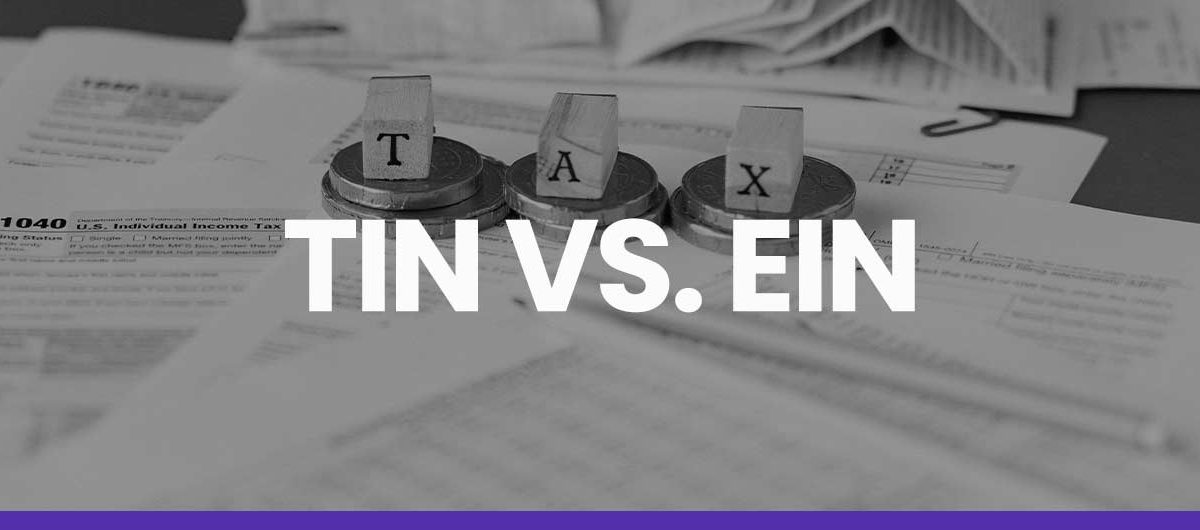TIN Vs EIN – Vital Differences

Classified Balance Sheet: It’s Purpose And Classification?
August 12, 2023
What Is Personal Financial Statement: A Comprehensive Guide
August 17, 2023TIN Vs EIN – Vital Differences
In today’s fast-paced and interconnected world, the landscape of taxation can be complex and overwhelming. Understanding the various tax identification numbers is crucial for businesses and individuals alike to ensure compliance and avoid unnecessary complications with the tax authorities. Two such identifiers that are often a source of confusion are the EIN and TIN. EIN stands for Employer Identification Number, while TIN stands for Taxpayer Identification Number. While they might sound similar, these two identification numbers serve distinct purposes and are assigned by different government agencies.
In this blog, we will delve into the differences between EIN and TIN, shedding light on their respective functions and guiding readers towards a clearer understanding of these critical tax identification numbers.
What is a TIN? Who needs it?
TIN stands for Taxpayer Identification Number. It is a unique identifier issued by the tax authorities to individuals, businesses, or other entities for tax purposes. TINs are used to track taxpayers and their financial activities. The format of TINs varies from country to country, and sometimes even within different tax jurisdictions within a country.
In the United States, for example, there are several types of TINs:
– Social Security Number (SSN): A nine-digit number issued to U.S. citizens, permanent residents, and temporary working residents. It is primarily used for individuals.
– Individual Taxpayer Identification Number (ITIN): A nine-digit number issued by the IRS to individuals who are not eligible for an SSN but need to file tax returns or conduct business in the U.S.
– Employer Identification Number (EIN): A unique nine-digit number issued by the IRS to businesses and other entities for tax purposes.
Individuals typically need a TIN to file income tax returns, claim certain tax benefits, and conduct financial transactions subject to tax reporting. Businesses and other entities need a TIN for tax reporting purposes, opening bank accounts, hiring employees, and engaging in various financial activities.
What is an EIN? Who needs it?
EIN stands for Employer Identification Number. It is a specific type of TIN issued by the IRS to businesses, partnerships, corporations, trusts, estates, nonprofit organizations, and other entities for tax purposes. The EIN serves as the business equivalent of an SSN for individuals.
Businesses and other entities use EINs to identify themselves for various tax-related activities, such as:
– Filing tax returns
– Paying employment taxes
– Opening business bank accounts
– Applying for business licenses
– Conducting financial transactions and contracts
– Hiring employees
What are the Differences Between an EIN and TIN?
The primary difference between an EIN and a TIN lies in their intended recipients. An EIN is a specific type of TIN issued to businesses and other entities, whereas a TIN can refer to any taxpayer identification number issued to individuals or entities, including EINs.
However, they serve different functions and are issued by different government entities.
Here are the main differences between the two:
1. Purpose:
– EIN: An EIN is primarily used by businesses and other entities for tax reporting and filing purposes. It is also known as a Federal Employer Identification Number (FEIN) and is issued by the Internal Revenue Service (IRS).
– TIN: A TIN is a broader term that encompasses various taxpayer identification numbers. The most common types of TINs include the Social Security Number (SSN), which is used for individuals, and the EIN, which is used for businesses and other entities.
2. Issuing Authority:
– EIN: The IRS issues EINs to businesses, corporations, partnerships, nonprofit organizations, and other entities to identify them for tax-related matters.
– TIN: The IRS issues TINs, including Social Security Numbers (SSNs) for individuals and EINs for businesses and other entities.
3. Usage:
– EIN: Businesses and organizations use their EIN when filing tax returns, opening business bank accounts, hiring employees, and conducting other financial transactions related to their operations.
– TIN: The term “TIN” is used broadly and can refer to both SSNs (for individuals) and EINs (for businesses and entities). SSNs are used by individuals for filing their personal income tax returns, employment purposes, and various financial transactions.
4. Recipients:
– EIN: Businesses, corporations, partnerships, and various organizations receive an EIN.
– TIN: Both individuals and entities can have a TIN. For individuals, it is their Social Security Number (SSN), and for businesses and entities, it is their Employer Identification Number (EIN).
Conclusion:
The disparity between EIN and TIN may appear subtle at first glance, but a closer examination reveals their unique significance in the realm of taxation. While both serve as identifiers for various entities, they are assigned by different government agencies and are tailored to specific purposes. The Employer Identification Number (EIN) primarily caters to businesses and other employer entities, enabling them to fulfill their tax obligations and establish a distinct identity for tax-related matters. On the other hand, the Taxpayer Identification Number (TIN) serves a broader scope, encompassing various individuals and entities that require a tax identification number but do not necessarily fall under the business or employer category.
Also Read: Pros And Cons Of Outsourced Tax Preparation Services
Farwah Jafri
Farwah Jafri is a financial management expert and Product Owner at Monily, where she leads financial services for small and medium businesses. With over a decade of experience, including a directorial role at Arthur Lawrence UK Ltd., she specializes in bookkeeping, payroll, and financial analytics. Farwah holds an MBA from Alliance Manchester Business School and a BS in Computer Software Engineering. Based in Houston, Texas, she is dedicated to helping businesses better their financial operations.






